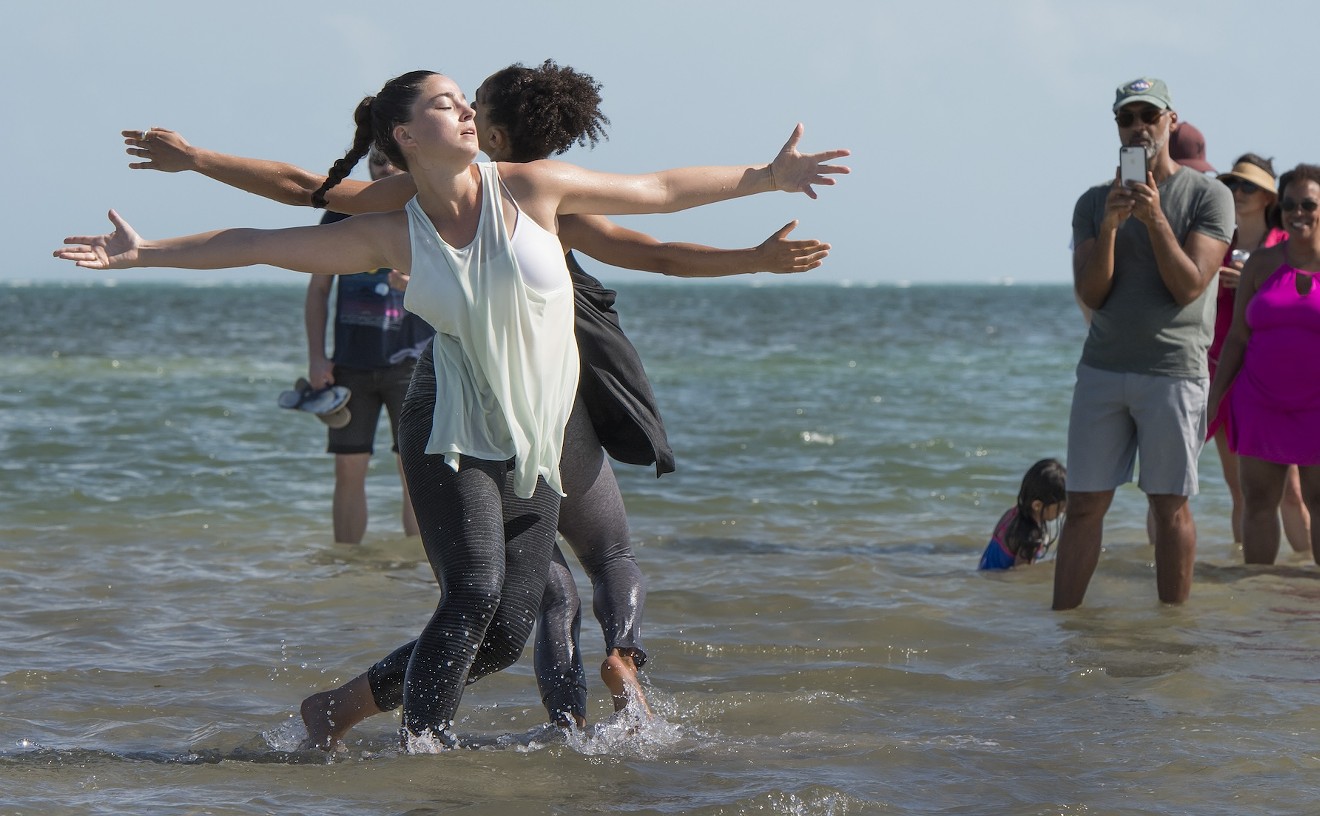No one understands this clique better than A.R. Gurney, successful chronicler of upper crust woes, a playwright who paints his characters white, Anglo-Saxon, and wealthy from the moment of conception. Whatever Madonna or Christian Slater represent to the average teen, Gurney knows that Golden Age legends like Noel Coward and D.H. Lawrence have a similar effect on many blue bloods from Exeter, Harvard, and the drawing rooms of Manhattan brownstones. And among these biblio-stars, none remains quite as tantalizing to preppies as F. Scott Fitzgerald. Shrouded in tales of madness and mystery, he represents the ultimate challenge: a prudish gentleman with the heart of a hedonist. Unlike Hemingway - who would be anyone's companion for a few drinks - "Scottie" was a private man, and therefore the perfect fantasy figure.
As a writer, Fitzgerald had a great deal in common with Gurney. They both wrote about the wealthy and warped, both used precise, glorious prose, and both told deceptively complex stories that on the surface can appear shallow. And speaking of shallow, meet Tom - Gurney's obsessed academic of The Golden Age, given a tidy production by New Theatre.
Born in St. Paul, Minnesota, Tom teaches American literature but hungers for fragments about his hometown's famous native son: Fitzgerald. Believing in the existence of a missing chapter to The Great Gatsby, he seeks out Isabel Hastings Hoyt, the most lovely hostess of her time and supposed confidante to the enigmatic author. Claiming to know everyone from Cole Porter to Freud to the Oracle of Delphi, Isabel coyly suggests she'd be willing to share the missing Fitzgerald chapter, providing that Tom gets her a publishing advance, listens to her meandering tales of past glories, collaborates with her to immortalize her own escapades, and romances her mousy granddaughter - the alcoholic, twice-divorced Virginia.
What unfolds is the classic cat-and-mouse, table-turning, psychological teaser. Either Isabel tricks, lies to, and blackmails Tom, or vice versa. Halfway through the first act, everyone's credibility has been strained - even that of the surprisingly horny Virginia. However, in Gurney's hands, this piece rises above a genre. Employing wit too intricate to explain in a single line, and stinging observations about human nature, the playwright builds a poignant but also vicious tale. Yet in spite of the psychological violence, these characters never raise their voices nor fully reveal their emotions, because Tom worships Fitzgerald - not Axl - and Isabel transacts her worst schemes in the best of taste.
If you enjoy drama that smacks you in the seat, Gurney's a mistake. His subtle touch forces thought before reaction. While the New Theatre's production respects this demeanor, it's a mixed blessing. Retaining the savoir-faire, director Rafael de Acha sometimes slows the pace a tad too much. The high bred may be casual, but drama needs to crackle. Overall though, I appreciated de Acha's dramaturgical instincts about Gurney, and hope his theater succeeds in obtaining rights to the playwright's more recent triumph, Love Letters, for next season's line-up.
Sally Levin as Isabel takes ten or more minutes to wax real, but it's worth the wait. Draped in fabulous antique wear, Levin's 80-year-old dowager queen exudes sexuality. The highlight of the cast - Holly Iglesias's Virginia - conveys pain, hope, desire, and duplicity with such a light and sure touch, she defines honesty on stage.
Only Greg Paul Meyers as Tom fails to inject energy into his white-bread worm, and so becomes a weak link that almost sabotages the piece. As a romantic hero, his passion and recklessness must peek through, but Meyers seems to confuse good manners with narcolepsy. (Note to the actor: check out James Spader, the perfect imploding preppie.) Meyers also fails to understand what he's saying at crucial moments. For instance, when he first asks about Fitzgerald's lost chapter, he blurts it out, as though he's enthusiastically remembering the line, rather than artfully snaking it into conversation.
Tom's ultimate goals may be vague, but like all groupies, his obsession is transparent. By touching the work of genius and discovering its hidden secrets, some of the magic might rub off. No different from the hysterical teen who wants a piece of Axl, he yearns to hold that missing manuscript.
But neither his desires, nor those of his female adversaries, contain many fireworks. On the other hand, considering the perversities of all three characters, and Gurney's mastery of dialogue, watching their nasty games becomes more absorbing than a hot Hollywood scandal.
As for me, an admirer of Gurney's gifts, I may need to travel up north. There's probably lots of fascinating stuff in his trash.
THE GOLDEN AGE
Written by A.R. Gurney, directed and designed by Rafael de Acha; with Holly Iglesias, Greg Paul Meyers, and Sally Levin. At New Theatre, 65 Almeria Avenue, Coral Gables, through March 29. Performances Fridays at 8:00 p.m., Saturdays at 6:30 and 9:00 p.m., Sundays at 5:00 p.m. Tickets cost $13 to $15, with discounts for seniors and students on Fridays and Sundays. Call 443-5909 for more information.










